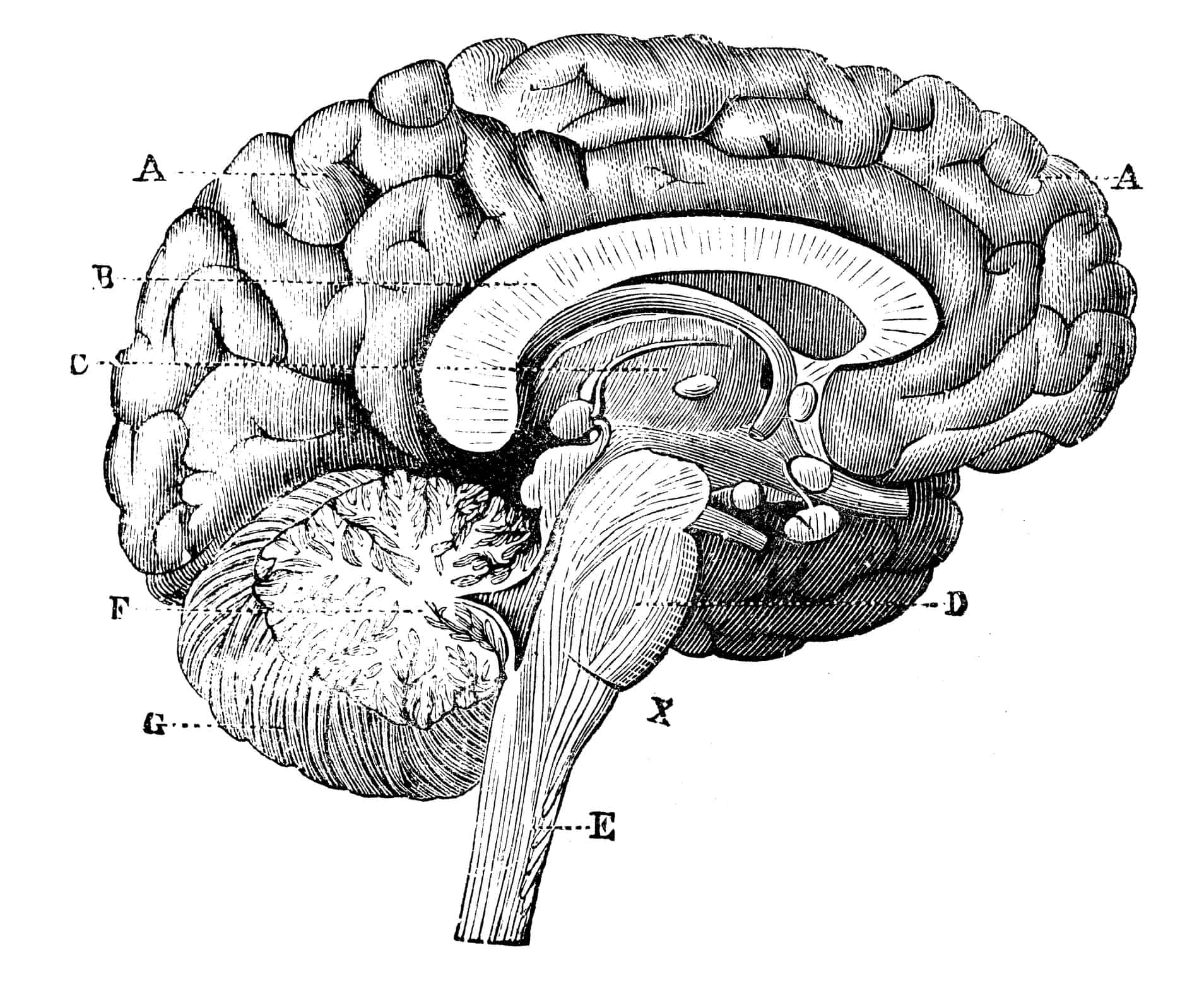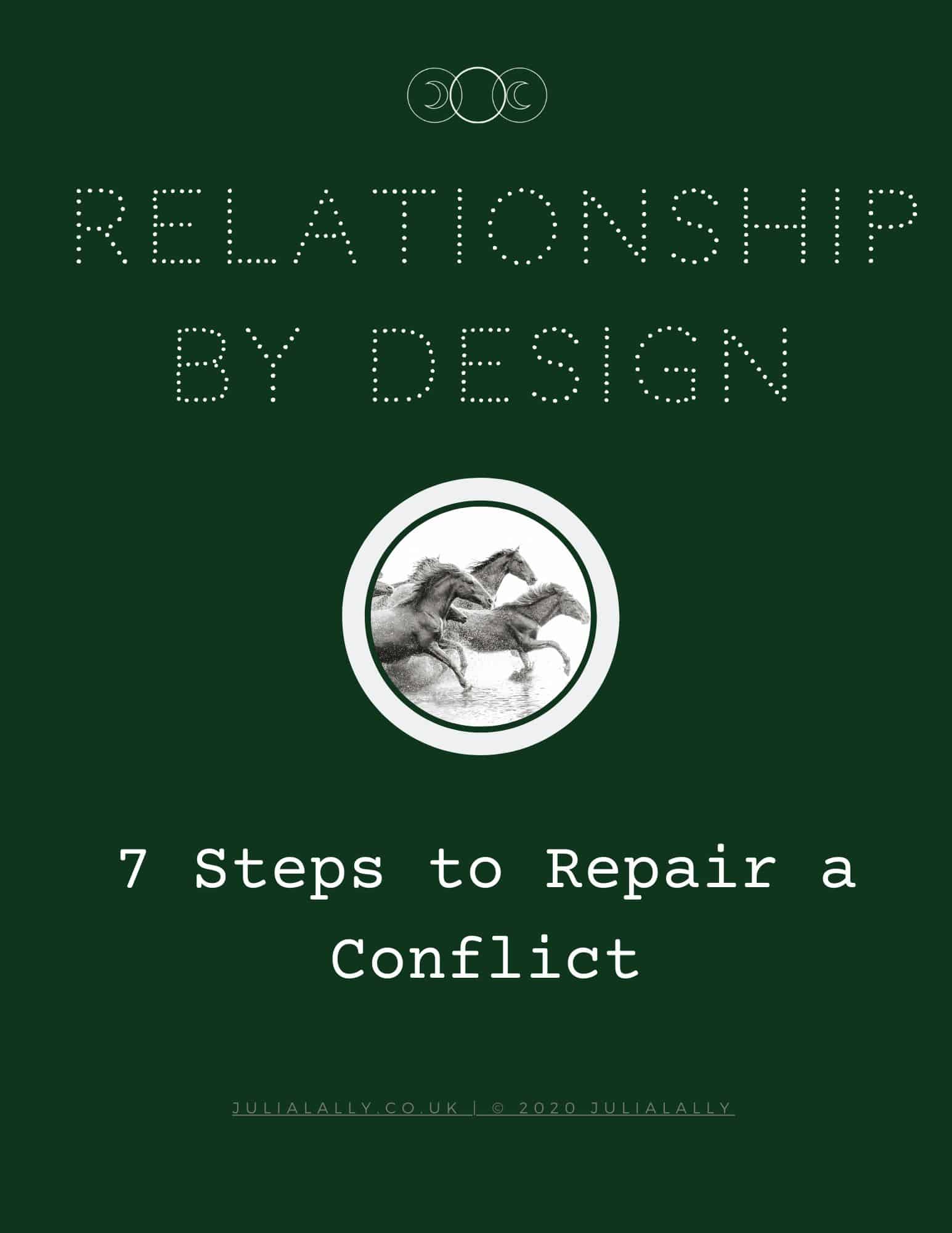Your Relational Brain
One of the foundational tools I use in the couple coaching package I offer is Stan Takin's Couple Bubble. The reason for this is that it remains superbly effective at turning things round when you find yourselves stuck in cycles of distress, conflict, and even harm.
how your brain drives your relating
The main premise of the couple bubble is that relationships thrive in environments of mutual safety and trust, and that we can go a long way towards facilitating that state of trust in our relationship, when we understand our partner's main triggers, (and then make an effort to soothe and mitigate them on a daily basis.)
It's a model based on generosity rather than codependence, and it works because the effort goes both ways. The result is what we call a successful and sustainable "third" in the relationship - the relationship itself.
Tended to regularly. Nurtured and cleaned up. Nothing in a well curated "third" is left to go to rot. Its a practice, ultimately. And one that I verse my clients in right from the very start.
In order to do master the practice though, Stan Tatkin suggests that we need to educate ourselves about the relational brain, and how it actually works. (Which is both for us and against us at times.)
He calls these aspects of the relational brain the Primitives and the Ambassdors, with the Primitives being ready to defend and help you survive when in danger, and the Ambassadors being the parts of the brain that know how to relate, contain, connect and co-operate.
Bet you you can guess which ones might serve your "third" the best, right?
WAR IS EASY
Yet the sad truth of the matter is that most of the time, when your relationship is in difficulty, it's the Primitives that run the show. I know for sure that it's a constant practice for my partner and I to avoid the trap of communicating from a place of survival stress. We all know the lowdown on the fight, flight and freeze response, of course. But it can still be quite shocking to see just how much of your relating can take place from these places.
Understanding that it is simply your brain - your Primitives - interpreting the relational situation in front of you as dangerous, that triggers these responses, is key to finally overcoming them and creating the connection and love you both yearn for. 
your brain parts
For a more in depth look at your nervous system and how it is set up to ensure your survival as a priority, and how all of this affects your capacity to connect and feel in relationship, you can try this article for preliminary reading here.
But for now, let's break down the individual parts of the brain involved and what they are doing for you.
the primitives
So these guys are the ones who work on behalf of your survival. Not on behalf of your relationship. You will need to get a really good handle on what and where they are, and what they do for you - mostly so you can notice when they are running the show hyperactively. Here we go:
Primitive: Amygdalae
Or the reptilian brain. Right at the base of your brainstem, this little portion of grey matter is the part of the human species that evolved first. As such, it is completely physiologically primed for survival. It's primary function is to pick up threat signals (e.g., dangerous words and phrases; dangerous faces, voices, sounds, movements, postures, smells etc.)
Activated on a hair trigger, immediate in it's response to perceived danger, it is this part of the brain that governs all automatic physical processes. Your breathing rate, for example, is run by this part of the brain. Crucial to understand for the state of your relationship however - the amygdalae also turn on your fight or flight response.
Many of us live in a near permanent state of nervous system activation. We are literally letting our amygdalae run the show.
The capacity to master not letting it run the show, is power and freedom in many aspects of human existence. Just look at the power of fear to create particular results in, say, advertising or politics. Now imagine that closer to home in your primary relationship. Just because your brain has evolved to do war and battle really, really well, does not mean you are victim to your own innate biology.
Don't shoot the messenger - but surely you want to take your power back? Stopping the war is personal.
Primitive: Hypothalamus
The hypothalamus releases chemicals in the brain and gives instructions to the pituitary and adrenal glands to release stress chemicals into the body; as such, it signals the need to fight fleet or freeze throughout the entire system.
This is known in technical terms as the HPA axis and, knowing how to turn this off rather than get swept up in the hormonal maelstrom is vital to your relationships.
Primitive: Pituitary and Adrenal glands
It is interesting that these glands can be chronically overstretched in human beings. Fight or flight - chemicals such as cortisol and adrenalin - are activated. Configured to increase heart rate and blood flow, to sky rocket blood sugars for an immediate release of energy to the cells, such a miracle of biology evolved to help us run or fight. Without these little glands humanity would not have survived,
But - as you might expect - such chemicals care little for the state of your sex or relationships.
Who needs to make babies when being chased by a lion?
Once real of course, more often than not the lion is now more imagined and perceived. But the biology remains the same. Quite simply, your relationship will really suffer if you are constantly surfing the internal waves of these hormones.
Primitive: Dorsal Vagus
I've mentioned Stephen Porges and his famous Polyvagal Theory before. But, in a nutshell, it identifies two aspects of the vagus nerve in a human body. One - the frontal (more on that later) connects and calms. The other - the back portion of the vagus nerve (also the first to evolve in a human body) is responsible for the body's capacity to totally shut down.
Known as the freeze response, this back up system has your wellbeing at heart. Should you be overwhelmed and unable to fight or run away, the dorsal vagus will kick in and your system will shut down. It has even been said that pain will not be felt in this place.
Unfortunately, the shutdown response of the dorsal vagus can stay on - it becomes what's known as "functional freeze". Meaning you are alive - but really not feeling much.
Can you think of how your dorsal vagal shut down might be impacting your relationship? Perhaps in bed for example? Or when it comes to articulating boundaries or desires?
The freeze is real.
the ambassadors
These guys are the really helpful ones. And once you know what they are, you can understand how specific exercises help to engage them and build their capacity too. If you really get on board with these practices, you will literally be rewiring your brain for relational mastery.
In all honesty, this is something my partner and I do on the daily. It's a constant practice of being human, becoming conscious of survival stress patterns, and choosing to use the brain muscles that change the landscape we are operating in. Over and over and over.
Ambassador: Orbito-Frontal Cortex
Oversees both primitives and ambassadors and keeps everything in order. The OFC is literally what brings you back into control over your mind when it is running amok. Developed as a part of the regulatory system that a baby learns in relationship with it's mother - this part of your brain will be chronically underfed if early social engagement did not take place for you (as happens with all sorts of traumatic births and dysfunctional early childhoods, of course.)
Crucially, you can see that is the development of this part of your brain was curtailed as a child, that it will be really hard for you to regain a sense of control and the capacity to self-regulate and self-soothe as an adult. In the case of your relationships therefore, this will pan out as a constant state of drama, conflict or distress between the couple.
Rest assured, your capacity to self-regulate and to use this part of your brain to run the show (rather than the HPA response as detailed above) will calm and soothe the arena in which you are both playing. It cannot be underestimated how important this is for safe, healthy and sexy relationships to thrive.
There are lots of really great ways to get the OFC functioning better, and to redirect blood supply to this area of the brain (Yay! Relationship bio hacks for the win!) Stay tuned to the end of this article for some suggestions.
Ambassadors: Right brain , Left brain
Ensuring that the two hemispheres of your brain are functioning well is also crucial for maintaining a healthy relationship. The right brain, as you probably know, governs empathy and body awareness. centres.
The left brain is, of course, the area of your brain that oversees processes and integrates. It's this part of your brain that will remind you you need to practice your relational brain exercises, for example. And then gets you to do them 😉
Ambassador: Insular Cortex
This part of the brain is a part of the inner - or limbic - system. It controls certain emotions and is involved in the processing of certain states (including orgasm, interestingly.) One of the really amazing roles it plays in human. beings is to help regulate certain emotions, but also is said to be involved in the process of intercoception - or simply, the capacity to feel inside one's own body.
This could be as simple as tuning into one's own heartbeat, or gaining a trusted relationship with one's "gut feelings." Bodily awareness, such as the capacity to know what one is feeling on a sensate level, is ruled by this part of the brain. All of these bodily sensations of course, contribute to understanding and feeling the cues of healthy attachment and empathy for another human being. It is also said to produce the love/cuddle hormone oxytocin.
Ambassador: Hippocampus
The hippocampus controls short term and long term memory and plays an important role in overseeing the regulation of stress hormones also. It has an inhibitory effect on the HPA axis stimulation. And if that turns you on you can read more about that here.
Ambassador: Ventral Vagus
I mentioned the ventral vagus nerve earlier when explaining the function of the dorsal vagus. The ventral vagus is, obviously, the frontal portion of this nerve. You can read more about this important nerve and our stress response here, but for now just know that it is the nerve responsible for turning on our parasympathetic - or rest and digest - human system. Without it, we pretty much run out of steam, and learn to propel ourselves forward by ramping up the HPA stress axis. More fight or flight.
Interestingly, the ventral vagus is grown in relationship to social engagement. A baby learns to self-regulate feelings of distress by reading the (hopefully) friendly and loving facial signs and sounds from it's mother. Learning ways to hack the vagus nerve and therefore turn off the stress response when you know it is on overdrive and harming your relational mastery, is another extremely important skill. Try some of these exercises here if you are interested to do this.
your relational brain workout
Right then. Let's get cracking!
Below are some of my favourite practices for engaging Ambassadors and coming out of distress with your partner. Of course, this is what relationship coaching is all about! Rolling up your sleeves, and getting the workout done.
Begin gently with these exercises and look for the state change they can bring abut. And enjoy.
Exercises
1. Learn to notice yours and your partner's physiological state as a regular thing. Are pupils dilated and eyes narrowing? Breathing fast and shallow? Skin flushing? Voice raised or aggressive and biting? Has the blame game started? These are all ways to see that the stress systems of the body are running the show. Gently point this out (to self and other) and regain control through regaining conscious awareness of the situation. The trick then is - naturally - to stop amassing the Primitive troops. Call off the war before it goes there. Walk away if you need to. Call a mutual time out. Come back when you have stabilised your system and start again.
2. Develop interception (the ability to know oneself and therefore to extend empathy) by practicing the exercise of sensate focus. Empathy really is a lifesaver in a relationship, but you cannot offer it falsely or it does not work. You can begin to practice this essential skill by taking a few moments each day to get in relationship with what you are feeling moment by moment. And to build an empathic relationship with yourself. However, don't just say "I feel furious." Learn to locate the actual physical sensation and listen to that instead. For example, "I feel an intense heat in my chest and have a ringing in my ears." This practice will help you develop a profound sense of self-knowing over time. And knowing oneself, truly means you can get to know another when you get really good at this. It precludes curiosity, and engages the part of your brain that knows how to operate beyond survival.
3. Learn to orient to present space and time. This is an extraordinarily simple but effective way to bring blood flow back into the front (conscious mastery) part of your brain - the orbitofrontal cortex. To do this exercise, let's say you have identified the Primitives are in action (step 1 above.). The next step then is to take a pause. Then gently let your gaze fall on four to five things in your environment. Take a little time to really take them in - what do you see? Really see it. This orientation to one's environment also activates part of the brain that brings you back into safety and self-control. Another lifesaver.
this is boring though, can't we do tantra instead?
I often encounter resistance when teaching these exercises to a couple. And the reason for this, I believe, is that raising consciousness is hard work. Much easier to just thrash around in our primitive and battle urges, after all. War really is what we know. And it really is what is modelled all around us.
Of course, compared to the hard work of relating, there are a million other options available to you - you can go into the jungle and take plant medicine. You can attend amazing workshops. You can read all the books. But ultimately, and in my opinion, you are still going to have to come home to the practice ground that is your relationship and pay such incredible attention to it that you eventually know how to stop the war before it ever gets started.
"Ooops. There goes my amygdala and HPA axis again, honey."
And whilst all this relational brain stuff may take you to new levels of geekery, the long and short of it is, I'd love you to know just how worth it this effort is over time. Because whilst we human beings love a bit of relational risk - nothing exciting, interesting or erotic happens outside of the arena of love, connection and safety.
Couples who work with me often want to jump straight to the ecstatic.
But the groundwork must be laid.
And understanding our relational brains is one sure fire way to do so.
Put the work in, relationship warriors. You won't regret it.
Julia Lally 2020
Categorised in: Conflict, Communication and Healing in Relationship
This post was written by Julia


